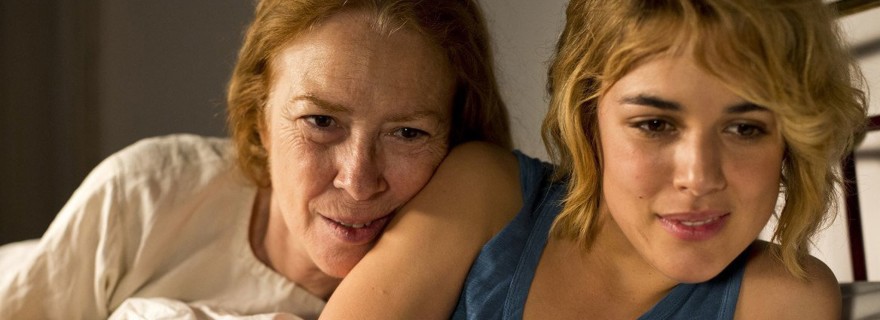'Julieta'
Movie Rating:
2
Spanish stylist Pedro Almodóvar isn’t particularly interested in the real world. While he’ll set stories in contemporary settings and shoot on location, his movies are always oversized and exploding with vibrant color. He adores melodrama, the types of films that twist and exaggerate human stories until they feel transportatively larger than life. That’s a tough style to pull off. Almodóvar always gets the grandiose aesthetic of the oft-misunderstood genre just right, but his stories don’t always live up to the pretty pictures.
His latest film, ‘Julieta’, is sadly one of those failed stabs at filling your heart with overblown emotion. It’s a tediously predictable tale of love and loss that offers no surprises or recognizable humanity, just a bunch of gorgeous sets/costumes/actors/scene transitions playing make-believe with a lot of hokum.
It starts in the present day when the title character, Julieta (Emma Suárez), unexpectedly discovers that her long lost daughter, Antía (Blanca Parés), isn’t dead, but very much alive and even vacationing nearby. This inspires the old gal to write out her entire life story into an apology letter (which is convenient for us viewers as it gives us something to watch and call a movie). We flash back to Adriana Uguarte playing the younger Julieta, who has a chance encounter with a super hunky fisherman (Daniel Grao) that quickly transforms into a sweeping love story. She falls so hard so quickly that she changes her entire life to move to his fishing village and pop out a baby. Then when he dies in a tragic accident, Julieta moves back to the city with her daughter as such as shell of a woman that the youngster ends up taking care of her. Eventually, the young girl has enough and moves away, bringing us back to the present day and either thinking “Will they/won’t they?” or “Can I go home yet?”
The good news for Almodóvar fans is that his film is once again gorgeous to behold. That bright Spanish light is blasted off sets and costumes of primary colors so blinding that the whole film looks like a trip through Willy Wonka’s chocolate factory. Almodóvar stages scenes with a sense of whimsy and verve. It floats by quickly and pleasantly, with some particularly impressive scene transitions to show the passing of time in a sudden shock cut. It’s very pretty and sweet. The actors wander around like perfume ad models with extra feelings and pounds of makeup. Everything is heightened, everything is bold, and yet somehow nothing registers beyond the candy-coated surfaces.
The film springs from the short stories of Alice Munro, who typically plays things small and quiet. Her stories don’t meld with Almodóvar at all since he plays everything so big. The result feels like hearing gentle musings through a shrill scream. Everything that should be quietly moving is nauseatingly overdone. The dialogue is beyond cheesy. The plot twists are visible from miles away. The cast tries their best to make it all feel credible, but they often fail. Eventually, after being pounded over the head by colorful pictures, Almodóvar attempts an open ending to make up for all the excessive handholding he forced viewers through, and it feels more like a slap in the face than an unexpected flourish.
There’s enough technical expertise on display here to make it clear that Pedro Almodóvar is still a talented stylist. What a shame that it’s in service of a screenplay that suggests he’s lost his gifts as a storyteller.



